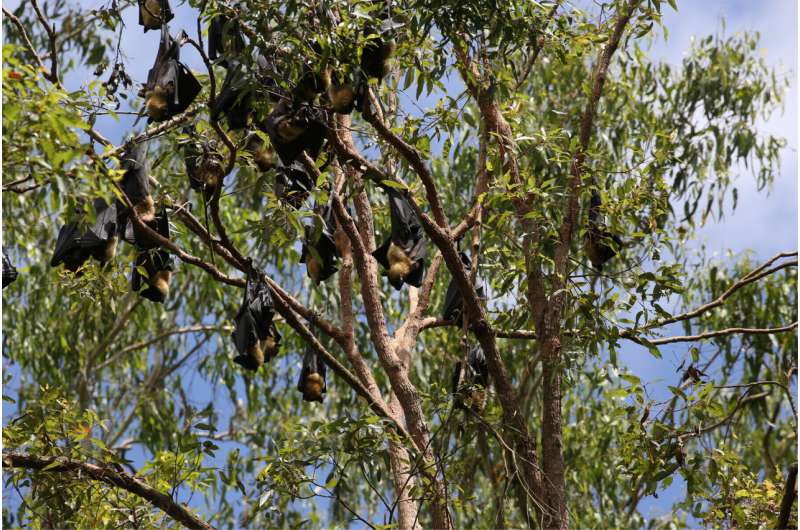This article has been reviewed according to Science X's editorial process and policies. Editors have highlighted the following attributes while ensuring the content's credibility:
fact-checked
trusted source
proofread
Moving beyond the pathology of policies pushing species toward extinction

A James Cook University researcher says scientists need to learn how to play the "politics game" if they don't want conservation goals to be continually ignored.
JCU adjunct Associate Professor Noel Preece is the lead author of a paper published in Integrative Conservation that examines why environmental policies are often agreed to but never implemented.
He said the research team used as an example the decline of the spectacled flying fox, despite programs designed to protect it having been signed off by the government.
"The Australian population of spectacled flying fox decreased by 75% between 2004 and 2017, even though a recovery plan was officially approved in 2010.
"No active recovery team was established until volunteers did so in 2020. This is not an uncommon outcome for endangered species' recovery plans," said Dr. Preece.
He said the researchers found policy and practice failures, lip service to conservation plans, dismantling of good policy, avoidance of legal responsibilities, and the disregard of scientific evidence had ruined many programs.
"While implementation of conservation plans is ultimately the government's responsibility, there appears to be no administrative means to ensure that action is taken. For instance, specific funding was not made available for most of the 25 key actions identified in the flying fox recovery plan," said Dr. Preece.
He said the situation cannot be improved by scientists simply providing more data.
"Instead, a deeper understanding of the science-policy-politics interface, as well as governance threats and power relationships, is essential. It's also important to recognize that industrial lobbying and regulatory capture hold great sway over government decision-making," said Dr. Preece.
He said the research team's new paper points out several common mistakes made, and misconceptions held, by those looking to protect the environment.
"Scientists need to accept that their evidence, while crucial, is only one component in a broader decision-making process. We must recognize this and strategize on how to effectively influence outcomes under these circumstances," said Dr. Preece.
More information: Noel Preece et al, Moving beyond the pathology of policies pushing species toward extinction: The case of spectacled flying foxes in Australia, Integrative Conservation (2024). DOI: 10.1002/inc3.54
Provided by James Cook University


















